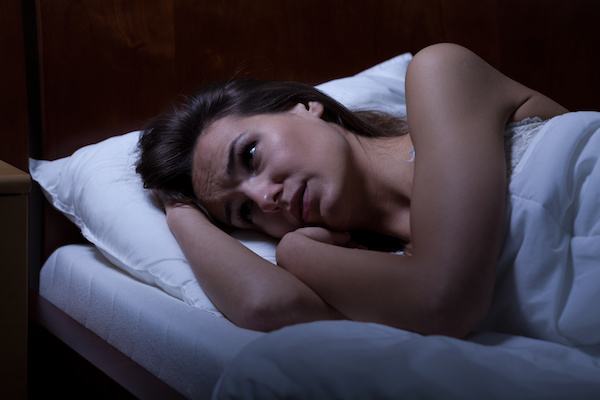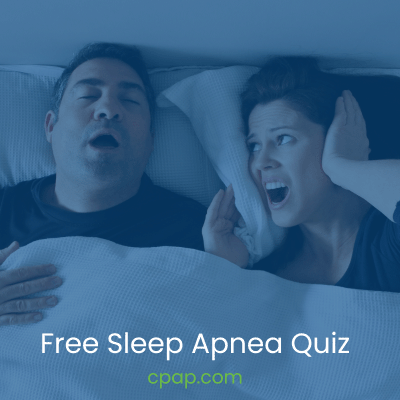
If you’re going through menopause and experiencing sleep disruptions that you’ve never had before, you’re not alone. One common menopause side effect is the development of sleep problems. Some women find that once menopause begins, they no longer feel rested, regardless of how much sleep they get. These nighttime problems can lead to daytime sleepiness, which can, in turn, lead to a lack of motivation and productivity.
How does menopause affect sleep? Although general insomnia is common in menopausal women, in many cases, consistent feelings of exhaustion can often be traced back to sleep apnea.
There are several reasons that women in menopause are especially susceptible to insomnia and to developing sleep apnea. Let’s uncover why scientists believe this development occurs, and how it can be treated to get the rest you deserve.
How Does Menopause Affect Sleep?
When it comes to answering the question of “how does menopause affect sleep,” there are several ways that it does. Many women who are going through menopause experience simple insomnia and as many as 61% of menopausal women suffer from it on a frequent basis. Experts believe it can be attributed to changing hormone levels.
The symptoms of insomnia are wide-ranging and can differ from person to person. Some common symptoms include difficulty falling asleep for thirty minutes or more, waking up too early, and not feeling refreshed after sleeping. Often a person can be diagnosed with insomnia if he or she gets fewer than six hours of sleep on three or more nights per week.
Fortunately, there are many strategies that women with insomnia in menopause can try to help them get a better night’s sleep. Creating a peaceful sleep environment with temperature, sound, and lighting in mind can make a big difference. Ditching habits like eating late, drinking caffeine after dinner, and not watching television or looking at your phone before bed can help too.
Menopause and Sleep Apnea
Sleep apnea is common in people of all ages—25 million Americans suffer from it. Sleep apnea is a sleep disorder in which a person’s breathing stops and starts while they are sleeping.
The development of sleep apnea is common in menopausal and post-menopausal women. Research shows that 20% of women develop sleep apnea during menopause, and as many as 47% to 67% of post-menopausal women end up developing it as well. Why?
There are a number of different factors that play a part in the development of Obstructive Sleep Apnea in women in menopause and post-menopause.
As women’s bodies begin to change in menopause, their hormone levels naturally decrease. Estrogen and progesterone are two hormones that do many different jobs in the human body.
One of the roles is to act as stimulants to the muscles in the throat to keep airways open. As hormone levels gradually become lower, those muscles begin to relax at night and cause breathing difficulties.
However, that’s not the only reason that menopausal and post-menopausal women are at higher risk of developing sleep apnea.
Lower levels of estrogen and progesterone can lead to weight gain due to the slowing of the metabolism. For people of all ages, sleep apnea is more common in people with higher BMIs and larger neck circumference.
Think You May Have Sleep Apnea? Take Our FREE Sleep Apnea Quiz!
How Sleep Apnea Is Treated
As many as 90% of people living with sleep apnea may be undiagnosed. Living with undiagnosed sleep apnea can cause high blood pressure, depression, and headaches in the long term and can lead to even more problematic and life-threatening conditions like diabetes, heart attacks, and strokes.
One of the most common ways to treat sleep apnea is with a CPAP machine. CPAP machines deliver a constant current of air into the body that helps to keep the airways open all night long.
If you are going through menopause or are post-menopausal and develop sleep disorders such as insomnia or sleep apnea, you have options. Talk to your doctor to be on your way towards a better night’s sleep tonight!





